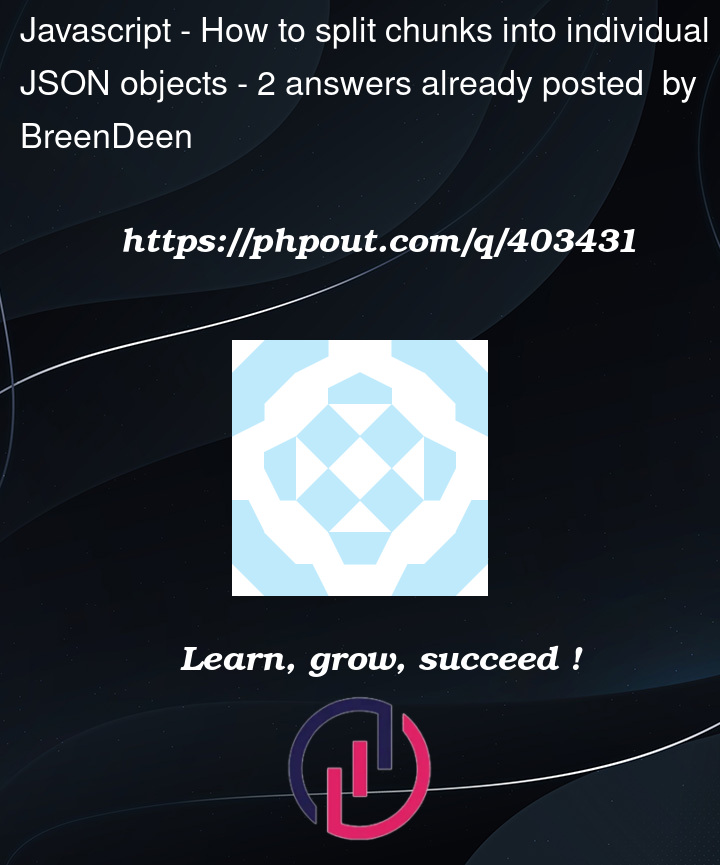I am fetching from an api which sends data in a stream. Unfortunately when I process the data in chunks, the chunks come as multiple JSON strings like this;
{
"productName": "bag",
"code": "BGX-112"
}
{
"productName": "purse",
"code": "PUSR-112"
}
etc..
Here is the code that process the data:
const getProductData = async (url:string) => {
const decoder = new TextDecoderStream()
let chunks: any[];
chunks = [];
try {
const response = await fetch(url)
const stream = response?.body.pipeThrough(new TextDecoderStream());
const reader = stream.getReader()
while (true) {
const {value, done} = await reader.read();
if (done) {
// Flush any buffered characters.
const stringArray = value?.split(/bs/);
chunks.push(value);
return chunks;
}
if (value) {
const stringArray = value?.split(/bs/);
chunks.push(value);
}
}
}catch (e) {
console.error("Error ",e)
}
}
I want to get the chunks as individual JSON objects so I can parse them, but I don’t know how. How can I achieve this?




2
Answers
To handle streamed JSON data, use TextDecoder to assemble chunks into a string Look for delimiters (e.g., }n{) to identify complete JSON objects split the string at these points and parse each segment with JSON.parse()
Even if the application sends chunks that consist of exactly one JSON string each, the
streamthat comes out of the text decoder may concatenate several of the sent chunks into one chunk that is seen by thereader.If the JSON strings were huge, it could happen that even one of them is split into two chunks seen by the
reader. The solution below assumes that this is not the case (in other words: the application streams many small JSON strings, not one huge).With this assumption, the code below splits each chunk seen by the
readerat those positions where a closing brace is followed by (whitespace and) an opening brace. This is sufficient if each JSON string is just aproductName/codeobject, as indicated in your question. If the JSON strings are more complex, the splitting may need to be adapted.The 10 chunks of JSON sent by the application give rise to 2 chunks (plus an empty one) seen by the
reader.